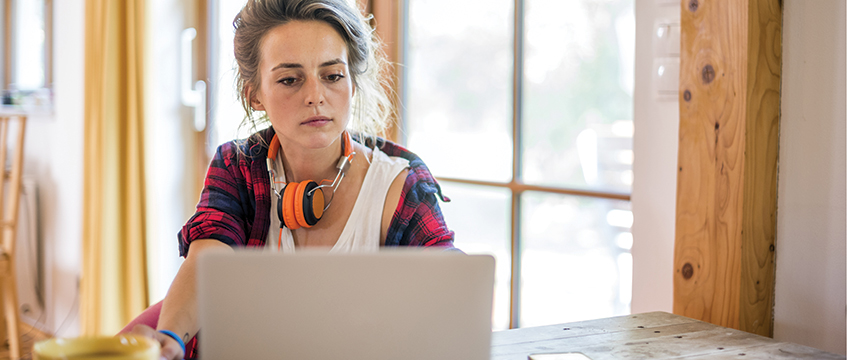The office will be a vital tool in the fight against false flexibility
Mental Health Awareness Week is an important opportunity for businesses to think hard about post-pandemic work strategies. Management teams will most likely be concerned with offering their workers more flexibility, and rightly so – but leaders should approach this with a note of caution: a model based solely on remote working will prove insufficient in supporting workers’ wellbeing.
Home working on a permanent basis only offers false flexibility. With 75% of UK workers suffering from burnout during lockdown, there clearly remains an appetite and a need for a more formal balance, rather than a blurring between work and home life. Hardly surprising, then, that recent figures put central London office take-up at 1.28m sq ft in the first quarter of 2021, a 117% increase on the previous quarter.
Put simply, before businesses think about ditching the office for good, they must consider carefully the risks of putting worker wellbeing on the line.
Mental Health Awareness Week is an important opportunity for businesses to think hard about post-pandemic work strategies. Management teams will most likely be concerned with offering their workers more flexibility, and rightly so – but leaders should approach this with a note of caution: a model based solely on remote working will prove insufficient in supporting workers’ wellbeing.
Home working on a permanent basis only offers false flexibility. With 75% of UK workers suffering from burnout during lockdown, there clearly remains an appetite and a need for a more formal balance, rather than a blurring between work and home life. Hardly surprising, then, that recent figures put central London office take-up at 1.28m sq ft in the first quarter of 2021, a 117% increase on the previous quarter.
Put simply, before businesses think about ditching the office for good, they must consider carefully the risks of putting worker wellbeing on the line.
Alleviating pressure
Confining workers to their homes in the long term will not give them the flexibility they are demanding and which they deserve. Instead, with productivity and personal wellbeing both boosted by the first post-lockdown return to collaborative workspace, there is clear value in empowering workers to choose which place of work suits them best.
This will mean investing in the workspace to ensure it is well-equipped to support workers’ wellbeing. As well as providing a platform for collaboration between colleagues – something sorely missed when working from home – the importance of office design as a buttress for wellbeing is being increasingly recognised by employers. Well-lit, well-ventilated and well-furnished workspace will be key to supporting workers’ mental health when we return to the office.
A hybrid workstyle with flexible hours would alleviate the pressure on more than 40% of workers who have worked longer hours at home than they would have done in the office. This encroachment of work on home life has severe implications for mental wellbeing, with 37% of respondents to a recent OSiT survey struggling to switch off while working from home, and 38% suffering from anxiety and stress due to being ‘always on’. These figures paint a clear picture – workers require an alternative to working from home full-time.
Furthermore, with women disproportionately disadvantaged by traditional rigid models of working, embracing hybrid models which enable parents to work around childcare duties would help reduce gender inequality in businesses. Flexible hours should therefore be advertised as standard as part of vacancy listings, particularly for management positions where the gender balance urgently needs addressing.
Building mutual trust
Amid reports that workers’ faith in executives’ empathy is lower than ever in the wake of the pandemic, businesses need to refresh their corporate culture by empowering employees to engage in proactive professional development. While businesses were forced to shelve shadowing and mentorship opportunities in the pandemic, video-call fatigue has shown online alternatives to be unsustainable in the long term. A return to an in-person workspace would therefore be welcomed by many workers.
It is vital that businesses bring back those water-cooler moments, as well as more formal networking events. With 68% of workers who changed jobs in 2018 doing so due to a lack of learning opportunities in their previous roles, business’ post-pandemic performance could depend on letting employees take their improvement into their own hands. So if employees feel at home in the office, it is in their employer’s interest to provide one which allows them to flourish.
Working with wellbeing in mind means understanding that there is no one-size-fits-all solution for businesses. Nor is there a single solution to suit all individuals in the same company.
This is precisely why it is so important for employers to reconsider their work strategies with a view to eliminating false flexibility. Rather than implementing full-time remote working on a permanent basis, businesses should empower employees to choose what works for them in terms of where, when, and how they get the job done. And perhaps, as well as being given all the necessary tools to work in a more agile era, the best thing to offer workers is the trust to take care of business – and their own wellbeing.
Niki Fuchs is managing director of Office Space in Town
Image © WestEnd61/REX/Shutterstock











